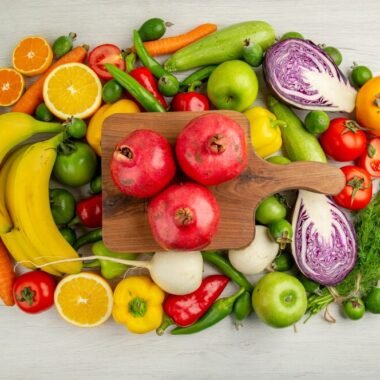When shopping for fresh produce or pantry staples, you’ve likely noticed the growing availability of organic options. But what exactly does “organic” mean, and how does it differ from non-organic products? At Polaganie Enterprise, we believe in the power of organic farming to provide healthier, tastier, and more environmentally friendly food choices. In this guide, we’ll explore the key differences between organic and non-organic products, helping you make informed decisions for your health and lifestyle.
What is Organic?
Organic products are grown and processed without the use of synthetic chemicals, pesticides, or genetically modified organisms (GMOs). Instead, organic farmers rely on natural methods, like crop rotation, composting, and biological pest control, to nourish the soil and maintain plant health. The focus is on sustainability, biodiversity, and maintaining a natural balance, which ultimately benefits both the environment and the consumer.
What is Non-Organic?
Non-organic products, also known as conventional, are grown using synthetic pesticides, herbicides, and fertilizers to maximize crop yield. Many conventional farms also use GMOs to create plants that are resistant to pests or harsh weather conditions. While these methods can lead to lower costs and larger quantities of food, they may come at the expense of environmental health and, in some cases, human well-being.
Key Differences Between Organic and Non-Organic
1. Pesticide Use
- Organic: Organic farming limits the use of harmful chemicals, using only natural or approved organic pesticides. This means fewer chemical residues on your food, making it a healthier choice for you and your family.
- Non-Organic: Conventional farming often relies heavily on synthetic pesticides. These chemicals can remain on the produce even after washing, potentially posing health risks over time.
2. Nutritional Value
- Organic: Studies suggest that organic products often contain higher levels of vitamins, minerals, and antioxidants. This is because organic farming practices focus on soil health, which leads to more nutrient-rich crops.
- Non-Organic: While non-organic foods can still provide essential nutrients, they may lack the same nutrient density as their organic counterparts due to the heavy use of chemical fertilizers that prioritize growth over quality.
3. Environmental Impact
- Organic: Organic farming is designed to work with nature, preserving soil fertility, reducing pollution, and promoting biodiversity. It uses fewer resources and helps protect ecosystems from the damaging effects of chemical runoff.
- Non-Organic: Conventional farming practices can contribute to environmental degradation, including soil depletion, water contamination, and loss of wildlife habitats due to the use of harmful chemicals and intensive farming techniques.
4. Taste and Quality
- Organic: Many consumers find that organic foods simply taste better. The natural growing process often leads to richer, more vibrant flavors because plants grow at their natural pace and absorb nutrients from healthy soil.
- Non-Organic: Non-organic produce, while often cheaper and more readily available, may not have the same depth of flavor due to the use of synthetic fertilizers and faster-growing techniques.
Why Choose Organic?
At Polaganie Enterprise, we believe that choosing organic isn’t just about avoiding pesticides—it’s about making a positive impact on your health, the environment, and the global food system. Organic products are more than a trend; they represent a commitment to sustainability, better nutrition, and responsible farming.
By choosing organic, you’re supporting farming practices that prioritize soil health, reduce chemical exposure, and protect biodiversity. Plus, you’re treating yourself to food that’s often fresher, tastier, and packed with essential nutrients. At Polaganie Enterprise, we offer a wide range of fresh, organic products that help you embrace a healthier, more sustainable lifestyle.
Make the switch to organic today and taste the difference.






